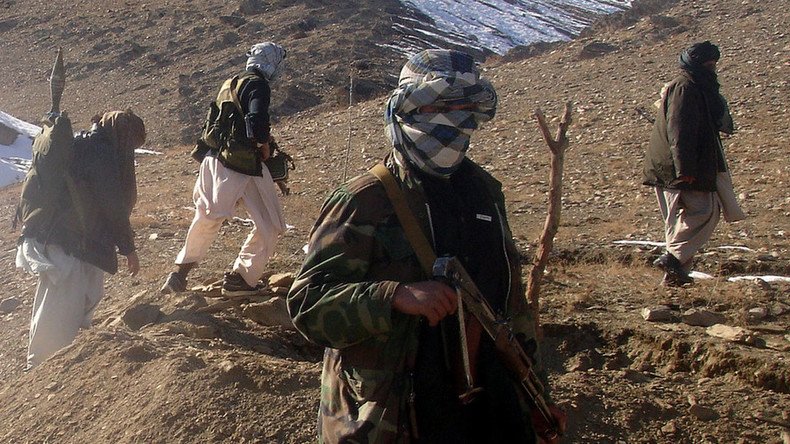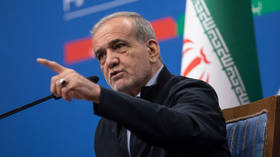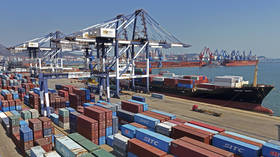15 years on: What US legacy in Afghanistan?

Afghanistan, it has been said, is the place where empires come to die. And while we might still fail to grasp all the geopolitical entanglements of this Afghan War, it is clear America overestimated its ability to project power in Central Asia.
Fifteen years on and Washington is no closer to a resolution in Afghanistan. Actually, the situation is much worse than that: 15 years on and America has lost all of its bearings; drowned in the middle of a furious geopolitical realignment it could not foresee, and yet managed to bring about.
But what did exactly happen, and more importantly still, why Afghanistan?
The question might sound rather silly, but does anyone actually remember why America declared war on Afghanistan? Maybe the solution is right there in the question, because the United States never really declared war on Afghanistan … not really anyway, and not in keeping with its own rules of engagement.
Afghanistan was always ground zero for a new form of foreign policy: aggressive military interventionism.
We might have missed it back then, but by by-passing Congress, the US set a dangerous legal and political precedent that essentially paved the way for militarized politicking. By passing the Authorization for Use of Military Force (AUMF) as a joint resolution, the US Congress de facto gave a grand carte blanche to the White House and its neoconservative cheerleaders. A beautiful democratic exercise indeed; the day America drove its exceptionalism to the next level, consequences be damned!
In this war against Terror, former US President George W. Bush sold the world with his infamous: “you are either with us or against is”; a binary narrative that imploded modern day politics, eroded at democracy, and now threatens to annihilate sovereign territoriality.
Such is the legacy of Afghanistan. By denying this one nation of Central Asia the courtesy of its own territorial integrity, and its inherent right to political self-determination, America exploded geopolitics, throwing entire regions into the pyres of war. And for what? Control!
In his report for Politico, Mark Perry summarized the Afghan US debacle as follow: “In all, the US has spent over $850 billion on the Afghanistan war, suffered nearly 2,400 dead and the Taliban are not only back in the field, they’ve made steady progress in wresting control of the country from the U.S.-backed Afghanistan government.”
But here is the thing: control is not what Washington bought itself – not even controlled chaos. We are not in a situation where the US is pitting opposing parties against each other to manifest a grander political reality. There is no PLAN, no rising imperial phoenix to soar from the ashes of the old world order - just one messy chaos gone bad for a lack of perspective and one acute case of neocon arrogance.
Or to put it another way: America made a deal with the devil and now he’s coming to collect.
Afghanistan here is merely the smoking gun. For those who doubt the claim, ask yourself this question: Who is in charge in Afghanistan? Not Kabul and its insipid Western-made wannabe politicians, not the people, and not even the tribes. Who then?
#Opium growth in #Afghanistan soars, eradication close to zero – UNhttps://t.co/l7zHPvPCv3pic.twitter.com/7O5hus90ZC
— RT (@RT_com) October 6, 2016
Well, we could argue the Taliban, or those war lords who from the depth of the criminal underworld rose themselves to the Heavens of capitalism, and made fortunes on the back of Afghanistan poppy fields, human trafficking trade and other niceties.
But even they are not in charge. What of al-Qaeda and its foreign patrons? Are they in charge? We know they want to be, we know they are desperately trying to reshape the entire Islamic world to their Wahhabist image before metastasizing into a global cancer.
Yes, ladies and gentlemen, Afghanistan is a hot mess and if we are not careful the Greater Middle East and Africa will be next.
15 years of instability
Interestingly enough Afghanistan’s redemption could also be that of America. For all its planning and scheming, for all its covert alliances with radicalism to counteract former foes (the Soviet Union in the 1980s) and pre-empt the rise of new ones: Iran, China, Russia, the list is infinite, the United States of America has allowed for many unknowns to muddy the waters. Playing both sides of the river to assert its own imperialism has not worked out well for Washington – especially since it has prevented its ruling class to see just what its Machiavellian philosophy has bought.
RIP Staff Sgt. Adam S. Thomas, 31, of Takoma Park, Maryland, died Oct. 4 in Nangarhar Province, Afghanistan. pic.twitter.com/g2vDCzdqBL
— The Fallen (@War_Casualties) October 6, 2016
By militarizing its foreign policy, Washington essentially allowed for war to dictate dynamics: either with us or against us. What about together? What about we stop envisioning politics through the lens of such a limiting binary complex?
The thing is, many nations, Russia in the lead, are pushing back against US-made interventionism and exceptionalism towards a healthier, more productive system – one anchored in the rule of law and sovereign nationalism.
If counter-terrorism was what really prompted the Afghan war, and many other wars after that, then how do we explain the exponential rise of radicalism across the world? Maybe because wars can’t defeat ideologies, maybe because Terror was too much of a convenient narrative for Washington to defeat when it could use it as an asymmetrical weapon of war.
Afghanistan stands as living proof of America’s political insanity. While America s unravelling at the hem, Afghanistan is picking itself back up; it has done it before, and it will do it again. Yes, this nation stands in ruins, but it stands not in occupation. America dramatically failed in its attempt to occupy Central Asia and rise the empire Britain could not – and not for a lack of trying, mind you.
Fifteen years on, I would say that America’s legacy lies in tatters in the very land which has seen many empires die.
The statements, views and opinions expressed in this column are solely those of the author and do not necessarily represent those of RT.















